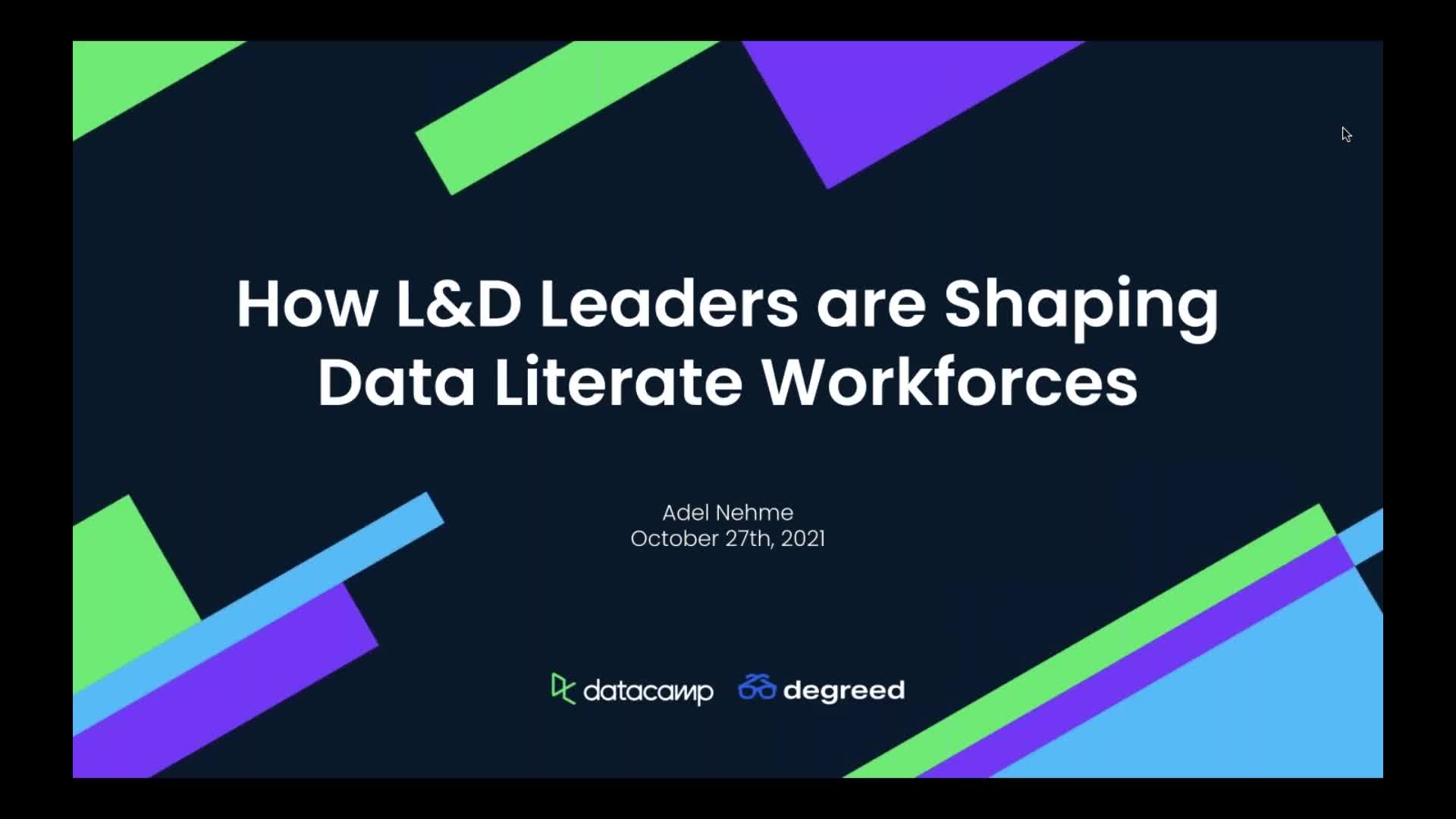Accéder au contenu principalPour les entreprises





Haut-parleurs


John O'Neil
Partnership Success Manager at Degreed
Formation de 2 personnes ou plus ?
Donnez à votre équipe l’accès à la bibliothèque DataCamp complète, avec des rapports centralisés, des missions, des projets et bien plus encoreConnexe
white paper
The L&D Guide to Data Literacy
Find the appropriate distribution of data skills across your organization.white paper
What 300+ L&D Leaders Have Learned About Building Data Fluency
Learn all about how to build a data-fluent culture and the wins you can unlock.webinar
What L&D Leaders Need to Know About Data Fluency
Find out about the data fluency competency areas to build within organizations.webinar
Data Literacy in the 21st Century
Get the low-down on what it takes to be data-literate today.webinar
The Learning Leader's Guide to Data Fluency
Learn how L&D is the silver bullet for organizational data fluencywebinar
Panel: Learning and Development for the Data Driven Age
Learn upskilling best practices from L&D leaders at Bloomberg and NatWest GroupJoin 5000+ companies and 80% of the Fortune 1000 who use DataCamp to upskill their teams.
Loved by thousands of companies
